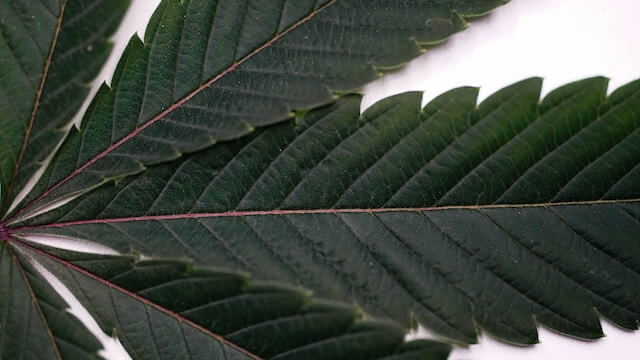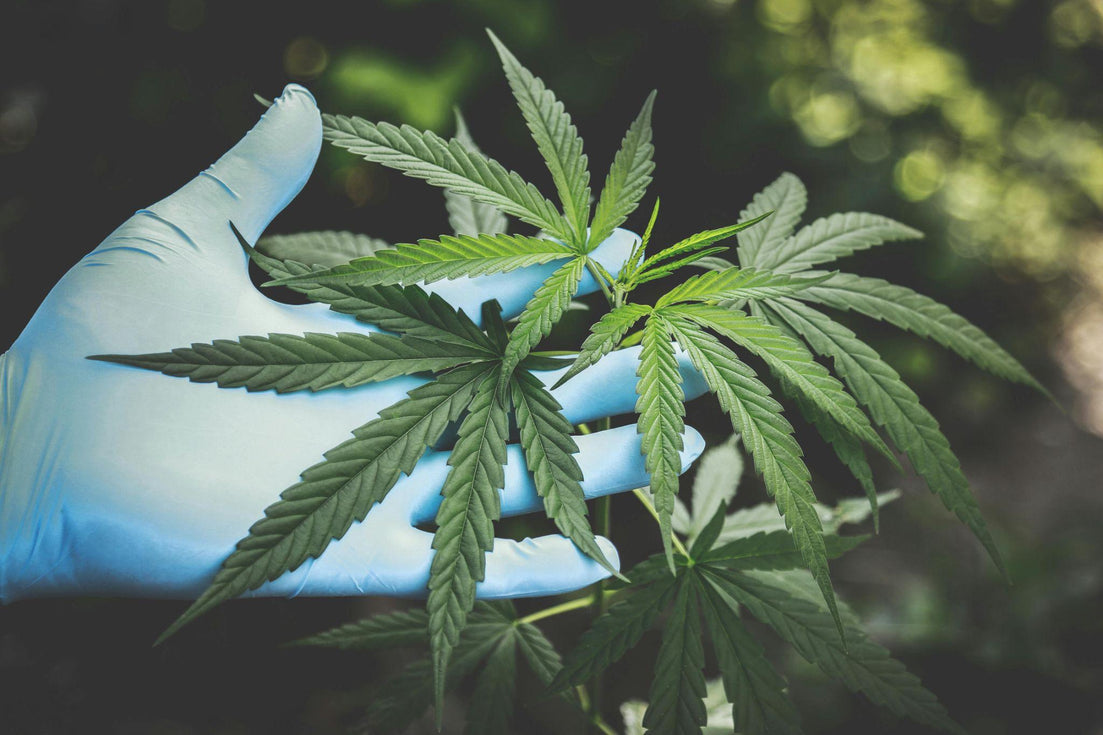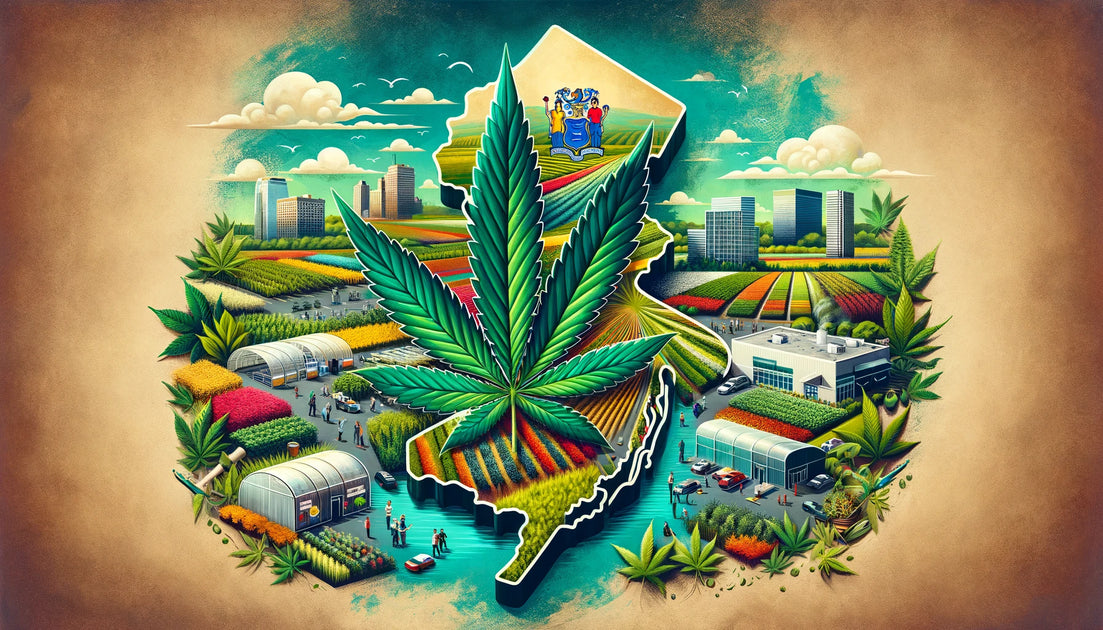Your cart is currently empty.

Ever feel like you're lost in a maze of letters and numbers when it comes to understanding cannabinoids? If so, this is for you. Today we dive into the latest addition to the cannabis family - THC-X. What's all the buzz about?
We'll unmask this enigmatic compound, revealing its unique structure that sets it apart from other THC variants. And while some might picture it as an elusive phantom lurking on marijuana leaves, we'll expose how scientists actually get their hands on THC-X.
Intrigued by what makes one high or not? Hold tight! We're going to delve into those mind-altering effects and also tackle the less discussed side-effects associated with THC-X use.
These compound laws can seem as unclear as a murky pond, but don't worry - clear understanding is on the horizon. Now, here's where it gets intriguing:
Understanding THC-X: A New Cannabinoid Ester Blend
The world of cannabis is evolving rapidly, with new cannabinoids like THC-X, or Tetrahydrocannabiphorol, being discovered. This unique blend of cannabinoid esters from hemp offers different effects than other well-known cannabinoids.
What is THC-X?
The cannabis industry has recently seen the emergence of THC-X, a novel cannabinoid ester blend derived from hemp. So what exactly is it? Unlike delta 9 and delta 8 THCs found naturally in cannabis plants, THC-X represents an ester blend created by attaching various organyl groups (such as acetoacetate or butyrate) to Delta-8-THC molecules.
This process modifies their chemical structure, resulting in a compound offering potentially different effects when consumed. The exciting part here lies not just within its uniqueness but also its potential applications for medical purposes.
The Origin of THC-X
Frozen Fields, a renowned name in cannabinoid innovation introduced us to this novel blend – creating three distinct D8 Esters known as Delta 8 Acetoacetate, Delta 8 Butyrate, and Delta 8 Isovalerate; these formed the original THC-X blend. As such, they’re hailed pioneers for introducing these variants into the market space teeming with consumers eager for newer experiences and benefits linked to cannabinoid use.
In terms of chemistry - it’s worth mentioning that structurally speaking each variant carries unique properties due largely towards differing lengths of carbon chains. These alterations could lead to varied effects on the endocannabinoid system and overall psychoactive impact, further widening their potential applications.
Legal Status of THC-X
The legality of cannabinoids can be complicated, due to the discrepancy between federal and state regulations. That's because federal and state laws often differ.
Meet THC-X, also known as Tetrahydrocannabiphorol. It's the latest game-changer in the cannabis world, with a unique makeup of cannabinoid esters that comes straight from hemp. What sets it apart? Well, this new kid on the block is created by adding organyl groups to Delta-8-THC molecules - a process which could lead to some exciting medical uses. The folks over at Frozen Fields are responsible for bringing this ground-breaking compound into play.
Legal Status of THC-X
The legal status of new cannabinoids, like THC-X, often raises eyebrows and curiosity alike. While these compounds originate from hemp plants and carry a multitude of potential benefits, they still have to pass through the hoops of federal laws and state-specific restrictions.
Federal Regulations on THC-X
In 2018, the Farm Bill made a landmark decision that dramatically changed the landscape for hemp-derived cannabinoids. The bill allowed any derivatives from hemp with less than 0.3% delta 9 THC, including THC-X products, to be considered federally legal. source
This is significant because Delta 9 Tetrahydrocannabinol (THC), unlike its sibling Delta 8 or other similar molecules such as CBD or CBG in cannabis plants, is generally more scrutinized due to its potent psychoactive effects.
Research suggests that if a product contains over this limit, it can produce euphoric effects comparable to those produced by marijuana use. Thus, making it fall under Schedule I controlled substances according to DEA regulations.
State-Specific Restrictions on Hemp-Derived Cannabinoids
Moving past federal law, we delve into an even trickier terrain - State Laws. Despite being federally legal, some states choose not only to ban marijuana but also all forms of synthetic cannabinoids, including Hemp-Derived Cannabinoids.
Mentioning it's worth noting that the legalities around THC-X and other cannabinoids may differ greatly from one state to another. In states such as Idaho, Nebraska, and South Dakota, cannabis of all forms—including hemp-derived cannabinoids—are strictly prohibited.
In contrast, California is more relaxed when it comes to cannabis laws but still maintains strict regulations for certain products high in Delta 9 THC content.
Comparing THC Variants
The cannabis sector is as multifaceted and intricate as the plant itself. One area that often confuses folks is the difference between Delta-9 and Delta-8, two primary psychoactive compounds found in marijuana.
Delta-9 vs. Delta-8
To fully understand these variants, we need to start with their structure. Both delta 9 THC and delta 8 THC products share a similar molecular structure but differ slightly in how their atoms are arranged. This minute alteration can have a substantial effect on the manner in which they interact with our endocannabinoid system.
The main active cannabinoid in marijuana is delta 9 THC, known for its potent euphoric effects. It's what most people think of when they hear 'THC.' However, it can also produce side effects like paranoia or anxiety in some users - something not everyone enjoys.
In contrast, delta 8 has been gaining attention as an alternative to delta 9 due to its milder psychoactive effects while still offering potential benefits such as reducing anxiety or helping with pain relief.
If you're looking at this from a legal perspective though - things get more complicated. Although both cannabinoids come from the same plant family (cannabis), only hemp-derived products containing less than 0.3% of delta-9 are federally legal according to the 2018 Farm Bill. This makes delta 8 THC products more accessible in some areas where marijuana use isn't legal.
But let's not forget that every state has its own set of rules. For example, even though the federal law permits hemp-derived cannabinoids, certain states like Idaho or Nebraska have prohibited their sale altogether. Before deciding to buy anything, always ensure that you are familiar with the applicable local regulations.
It's also important to bring up another version called THC-X. This is a compound made from hemp, then mixed into an ester blend.
Untangling the puzzle of cannabis, it's key to know the difference between Delta-9 and Delta-8 THC. Though they look alike, their impacts aren't. While Delta-9 gives a strong high but might cause anxiety; on the flip side, Delta-8 offers gentler mind-altering effects with possible perks like easing anxiety or relieving pain. But hold up. The legal stuff is no walk in the park.
The Market for THC-X Products
THC-X products are making a name for themselves in the world of cannabis. They've emerged as an ultra-bioavailable alternative to standard hemp or delta 8 items, driving their popularity skyward.
The Rise of THC-X Products
These innovative cannabis products, known as thc-x cannabinoid blends, have captured the interest of both consumers and retailers alike. Thanks to its unique properties, this compound offers new experiences that differ from traditional cannabinoids.
In fact, within just two years since its introduction into the market (Key Stat: 4), sales of these cutting-edge THC variants have seen a growth rate exceeding other comparable goods by nearly six-fold (Key Stat: 6). It's safe to say that thc-x is revolutionizing what we know about cannabinoid consumption and pushing boundaries in terms of potency and bioavailability.
So why has there been such a significant shift towards these newly introduced products? The answer lies primarily in their enhanced absorption rates compared with those offered by more common forms like standard hemp or Delta-8. This quality makes them highly potent – some might even say they pack quite a punch.
Pioneering Retailers Selling Them
This boom hasn't gone unnoticed among savvy retailers who see opportunity knocking at their doorsteps. They're racing against time to stock up on these sought-after commodities before shelves go empty again due to high demand.
An example would be Wild Orchard Co., which specializes exclusively in selling top-quality THC derivatives including thc-x products. Their items have gained traction among enthusiasts who are always on the lookout for new ways to enjoy their favorite plant. However, they face stiff competition from Triangle Hemp Wellness.
Triangle Hemp Wellness is another leader in the pack. They take pride in their lab-tested THC-X products, all sourced from organic hemp. But they're not just about selling items; they're here to shift your view on cannabinoids and what we can do with them.
THC-X is a game-changer in the cannabis market, outperforming other products due to its superior bioavailability and potency. Retailers like Wild Orchard Co. and Triangle Hemp Wellness are cashing in on this trend, offering top-quality THC-X products that offer consumers new ways to experience their favorite plant.
FAQs in Relation to What is Thc-X and Its Effects?
What gets you higher delta-8 or delta 10?
Delta-8 is typically milder, providing a more relaxed high. Delta 10 tends to produce an energetic, euphoric effect that can feel stronger.
Why does my high go away so quickly?
Your body metabolizes cannabinoids over time. Tolerance levels and the potency of what you use also play key roles in how long your high lasts.
What are the new cannabinoids in THCX?
The THC-X blend includes three D8 esters: Delta 8 Acetoacetate, Delta 8 Butyrate, and Delta 8 Isovalerate which contribute to its unique effects.
What is the strongest cannabinoid?
Tetrahydrocannabinol (THC) is considered one of the most potent due to its psychoactive properties. However, individual reactions may vary based on personal tolerance levels and other factors.
Conclusion
THC-X isn't as elusive as you might think. It's a new cannabinoid, distinct from others due to its unique ester blend.
Don't let the legality of THC-X confuse you; it falls under federal law just like other hemp-derived cannabinoids, with certain state-specific restrictions in place.
When comparing variants, remember Delta-9 and Delta-8 aren’t all that different. Both play their part in what we know about THC today.
The market for THC-X products is on the rise, gaining traction thanks to its ultra-bioavailability compared to standard hemp or delta 8 options. Keep an eye out!
To sum up: What is THC-X and its effects? It’s a novel compound adding more depth to our understanding of cannabis plants while offering potential benefits yet fully explored by science. Always stay informed - knowledge makes navigating this exciting field much easier!



